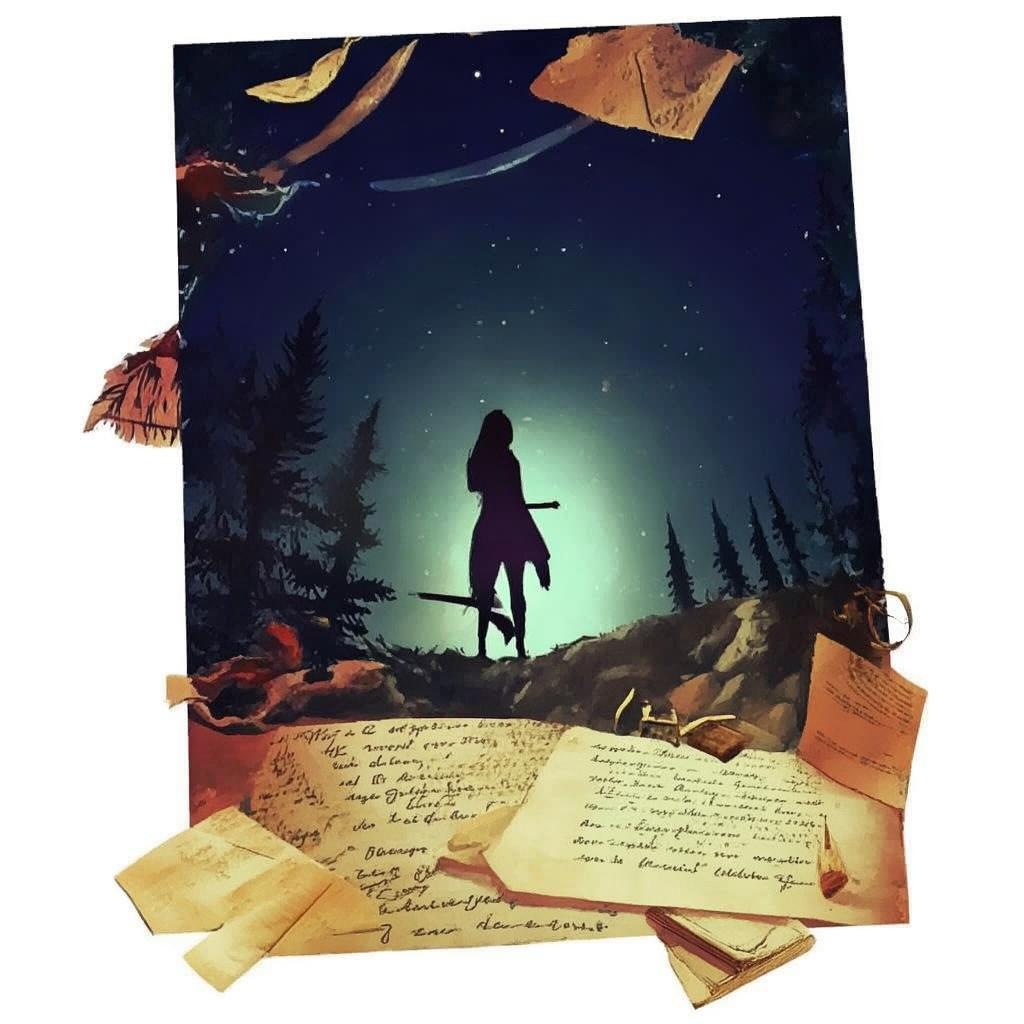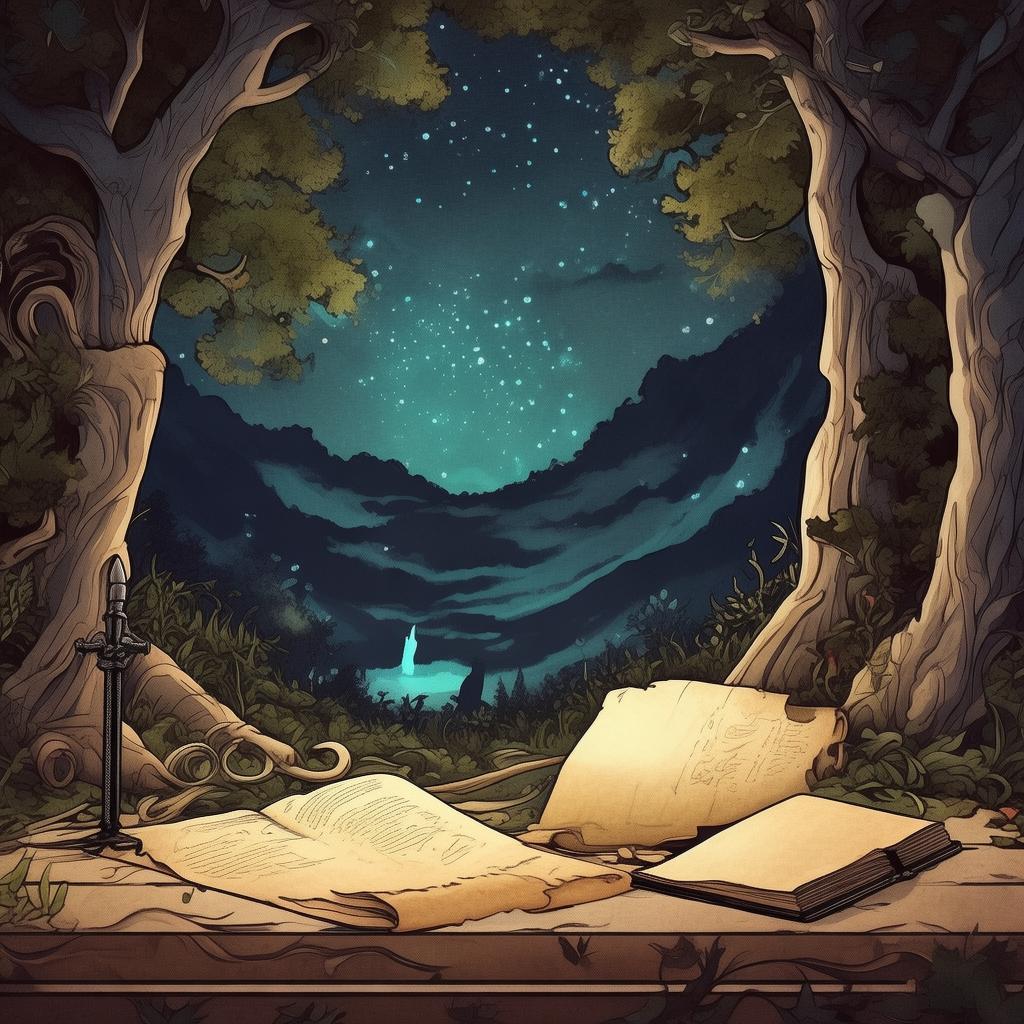The Lyre's Echo: Shahram's Unfulfilled Dream
In the heart of ancient Persia, where the sun baked the earth and the wind whispered secrets of old, there lived a young man named Shahram. His fingers danced over the strings of his lyre with a grace that was said to soothe the very mountains. It was said that Shahram was chosen by the gods to compose the world's most beautiful melody, a song that would echo through the ages and be the ultimate expression of human emotion.
Shahram's dream was simple yet grand: to create a piece of music that would transcend time and space, a melody that would touch the hearts of all who heard it. He spent his days in the serene isolation of his studio, his lyre his only companion, his fingers tracing the patterns of the music that danced in his mind.
One day, as Shahram sat before his instrument, the melody came to him in a flash of inspiration. It was a song of love, of loss, of the eternal quest for meaning in the universe. He played it for the first time, and the sound filled the room, resonating with an emotion that seemed to transcend the very walls.
As the song reached its climax, Shahram felt a surge of power unlike anything he had ever experienced. The melody was perfect, and he knew that this was the song that would define his life. He named it "The Lyre's Promise."
But fate, as it often does, had other plans. As Shahram was about to share his masterpiece with the world, a terrible drought struck the land. The king, desperate to end the suffering, decreed that the lyre's music would be used to summon the rain. Shahram, though reluctant, agreed, believing that the greater good was worth the sacrifice.
The king's courtiers gathered, and Shahram played "The Lyre's Promise." The melody soared into the heavens, and rain began to fall. The people rejoiced, and Shahram was hailed as a hero. Yet, in his heart, he felt a hollow emptiness. The song that was meant to be the pinnacle of his existence had been used for a purpose far removed from his dream.
Days turned into weeks, and Shahram's passion for his music waned. He felt the weight of his unfulfilled dream pressing down on him, a weight that seemed to grow heavier with each passing day. He became distant, his fingers no longer dancing with the same fervor over the lyre's strings.
One evening, as the sun dipped below the horizon, casting long shadows across the land, Shahram sat alone in his studio. He picked up his lyre and began to play, but the music that emerged was disjointed, filled with pain and longing. He realized that the true power of his melody had been lost in the act of fulfilling the king's request.
Desperation gripped Shahram as he sought to reclaim the essence of his dream. He wandered the streets of the city, searching for inspiration, but the music that had once filled his heart seemed to have left him forever. He visited the temples, seeking guidance from the gods, but they remained silent.
One night, as Shahram walked the desolate streets, he stumbled upon an old, abandoned lyre shop. The door creaked open, and he stepped inside. The air was thick with the scent of old wood and forgotten melodies. In the corner of the shop, he found a lyre that seemed to call to him.

Shahram took the lyre in his hands and felt a surge of energy course through him. He played a single note, and the sound was pure, unadulterated, and filled with the promise of something new. He knew that this was the beginning of his redemption.
For weeks, Shahram worked tirelessly, blending the essence of his original melody with the new inspiration he had found in the old lyre shop. He played through the night, his fingers dancing over the strings, his heart filled with the hope of a new beginning.
Finally, the day of his performance arrived. Shahram stood before the crowd, his lyre in hand, his heart pounding with anticipation. He began to play, and the music that emerged was a symphony of hope, of love, and of the enduring power of dreams.
As the last note echoed through the air, the crowd erupted into cheers. Shahram looked out at the sea of faces, and he felt a sense of fulfillment he had never known before. He had not only reclaimed his dream but had also found a new purpose, one that transcended the boundaries of his original vision.
Shahram's lyre had once been a vessel for the gods, a tool for the king, and now it was his own. He realized that the true power of music lay not in the fulfillment of destiny but in the journey itself, in the struggle to create something beautiful out of the chaos of life.
And so, Shahram's dream was unfulfilled, but his journey had only just begun. He had learned that the true melody of life was not a single note but a symphony of experiences, each one a step closer to the ultimate harmony.
✨ Original Statement ✨
All articles published on this website (including but not limited to text, images, videos, and other content) are original or authorized for reposting and are protected by relevant laws. Without the explicit written permission of this website, no individual or organization may copy, modify, repost, or use the content for commercial purposes.
If you need to quote or cooperate, please contact this site for authorization. We reserve the right to pursue legal responsibility for any unauthorized use.
Hereby declared.









